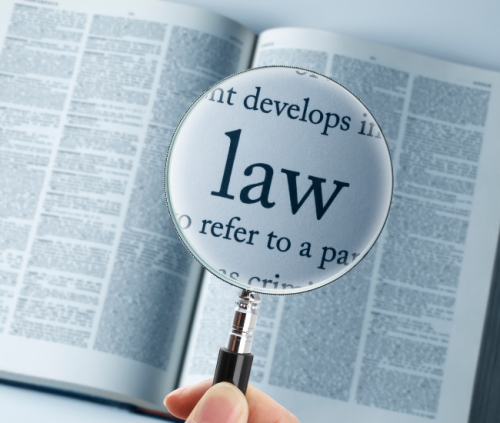Who We Are
Charlton B. Ogden III, an experienced Covington, Louisiana attorney, was born and raised in uptown New Orleans and now resides in Abita Springs. In 1990, he moved to the Northshore, bringing his robust legal expertise to the area. He attended Tulane University Law School, receiving his Juris Doctorate degree in 1981.
For fifteen years, he practiced law with and became a partner with his father, Charlton B. “Chuck” Ogden II, in New Orleans. There, he excelled in civil litigation, developed his expertise in estate planning, succession law, property law, and general civil law. This seasoned background distinguishes him as an experienced Covington, Louisiana attorney. He has been practicing law extensively on the Northshore since 2001, with law offices in Covington. His practice of law is a family tradition, marking him as a thirteenth-generation lawyer.
Blessed to be a proud grandfather of four and father of two girls, he enjoys spending time with his wife, Lynne, and family at their home and at festivities that abound in the Town of Abita Springs and on family vacations. Charlton also enjoys playing golf and saltwater fishing. He is a longtime member of First Baptist Church of Covington where he has been honored to serve as an usher-greeter since 2011.

At Ogden Law, we guide you through the complexities of your legal journey with an approach that goes beyond conventional lawyering. Here’s what to expect when you partner with us:
Faith-Based Approach: As an experienced Covington, Louisiana attorney, Charlton Ogden has rooted his practice in his Christian faith. We believe law is more than just a profession – it’s a calling. We serve our clients with the same honesty, integrity, and love that we are taught to extend to our neighbors. At Ogden Law, you will find a community that respects and upholds your values.
Family-Oriented Service: We appreciate that each case involves not just an individual but their loved ones as well. We approach each case with the same care, attention, and commitment we would offer to our own family members. You aren’t just another case number at Ogden Law; you are a valued member of our extended family.
Unshakeable Integrity: Honesty and integrity are the foundations of our practice. We are proud to stand against the negative stereotypes often associated with our profession. Rest assured, with Ogden Law, you will always receive fair, transparent, and ethical legal advice.
Experienced Guidance: Charlton Ogden brings decades of experience as a Covington, Louisiana attorney. Expect a thorough, meticulous, and results-driven approach to your case.
Reasonable and Fair: We believe that quality legal representation should be accessible to all. Our fee structure is reasonable and transparent, with no hidden costs or surprise charges. At Ogden Law, we believe in fairness, both in and out of the courtroom.
Dedicated Communication: Charlton Ogden personally ensures clear, consistent communication with each client. We listen, we understand, and we keep you informed. This way, you are never left in the dark and are always empowered to make the best decisions about your case.
At Ogden Law, we don’t just handle your legal matters; we take the journey with you. Trust us to provide you with compassionate representation, personal service, and dedicated communication that you deserve. Partner with an experienced Covington, Louisiana attorney for more than just legal assistance; gain peace of mind, knowing your case is in capable, caring, and principled hands.

Expert Legal Guidance, Unwavering Support, and Personalized Solutions for Your Unique Situation.

Estate planning involves determining how an individual’s assets will be preserved, managed, and distributed after death. It also takes into account the lifetime management of an individual’s properties and financial obligations, as well as the management of an individual’s health care in the event of incapacitation. Contrary to what most people believe, this isn’t a tool meant just for the wealthy. Parents and/or grandparents with children and/or grandchildren should have valid estate plans in place.
A basic estate plan includes (1) a General Power of Attorney – Appointing a trusted person as one’s agent in the event of incapacity to manage an individual’s property rights and business affairs, (2) a Medical Power of Attorney – Appointing a trusted person as one’s agent in the event of incapacity to manage an individual’s health care. (3) Living Will Declaration – Proclaiming an individual’s desire not to be kept alive by artificial means when it is determined by the treating physicians that the patient’s condition is terminal and life would be prolonged only by the use of such means), and (4) Last Will and Testament – Instructing how an individual’s estate (property of which the decedent dies possessed of) shall be transferred to specific individuals or other legal entities and how the decedent’s estate shall be managed by a trusted person, known as an executor, during the legal process of the succession of the decedent’s estate to those named as legatees under the decedent’s will.
Without Estate Planning, Louisiana law provides for the management and care of an incapacitated individual’s person and property and how and to whom a decedent’s estate must be managed and transferred. This usually leads to expensive court actions for the appointment of one to care for the incapacitated person or curator, litigation over the management of the decedent’s estate, the appointment of those to care for the decedent’s minor children, if any, and/or the transfer of the estate to the legal heirs, who in some instances are not those to whom the decedent wishes to share in his estate.
A will is a legal document that outlines how you want your assets to be distributed after your death. It also appoints an executor to manage your estate and carry out your wishes. A trust, on the other hand, is a legal arrangement where a trustee holds and manages assets on behalf of beneficiaries. Trusts can be established during your lifetime or upon your death, as specified in your will. Trusts can offer more flexibility, privacy, and tax benefits compared to a will, but they can also be more complex and expensive to establish and maintain.
Succession is the legal process whereby the assets comprising a decedent’s estate are transferred to the legal heirs in intestate successions (where the decedent died without a valid Last Will and Testament) or to the legatees in testate successions (those persons or entities specifically named in the decedent’s Will to whom the property comprising the decedent’s estate shall be transferred). In most instances, Successions include the management of a decedent’s estate pending its distribution to the legal heirs by operation of Louisiana law in Intestate Successions or to the legatees in Testate Successions pursuant to a Last Will and Testament. During the management of a succession, the succession representative shall pay the decedent’s outstanding debts, if any, and succession administration expenses using funds out of and identify and evaluate the assets comprising the decedent’s estate. This may require the sale of some estate properties to fund the payment of debts and administration expenses. Thereafter, the succession representative shall petition the court on behalf of the heirs or legatees for a judgment of possession whereby the assets comprising the decedent’s estate shall be transferred to the legal heirs or legatees after accounting for any debts and the administration of the succession.
Property law governs the ownership, use, and transfer of real property (land and buildings) and personal property (movable possessions). Common issues in property law include disputes over property boundaries, easements (rights of way), adverse possession (squatter’s rights), zoning and land use regulations, landlord-tenant disputes, and the sale or transfer of property. An attorney specializing in property law can help you navigate these issues and protect your rights.
A general civil law practice covers a broad range of non-criminal legal matters. Attorneys who practice general civil law may assist clients with issues related to contracts, property, business and corporate law, estate planning, successions, family law, personal injury, and more. These attorneys provide legal advice, draft and review documents, negotiate settlements, and represent clients in court or before administrative agencies. Their primary goal is to resolve disputes and protect their clients’ rights and interests in various civil matters.
A General Power of Attorney is a legal document wherein you appoint a trusted person or persons to act on your behalf in financial and personal matters. A Medical Power of Attorney is a legal document wherein you appoint a trusted person to act on your behalf in healthcare matters. These are necessary to help ensure your affairs are managed according to your wishes and by whom you wish to manage those affairs if you become incapacitated or unable to make important decisions yourself.
A Limited Liability Company (LLC) is a legal entity formed by an Organizer or Organizers that combines the advantages of both corporations and partnerships. It provides personal liability protection to its members from the debts or obligations of the LLC. An LLC is formed by Articles of Organization and governed by an Operating Agreement, whereby the members of the LLC agree, among other things, on how and by whom the LLC shall be managed, the voting rights of the members, and the transfer of ownership interests to third persons.